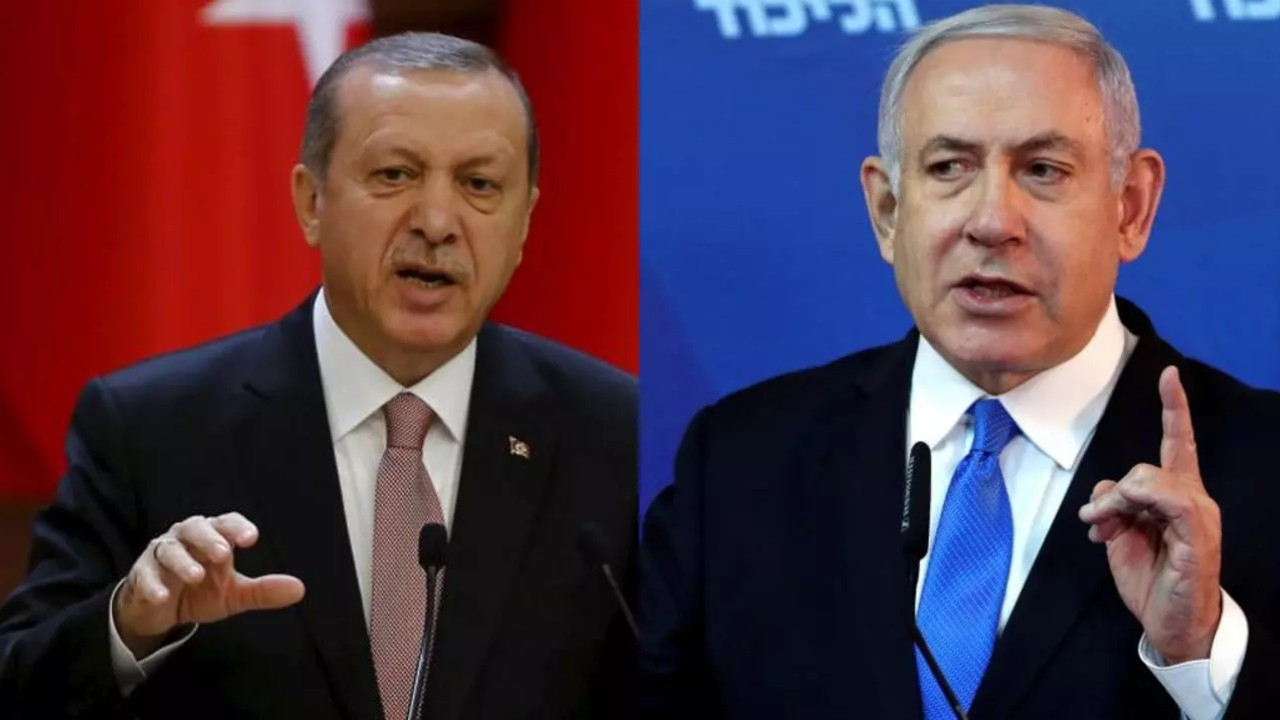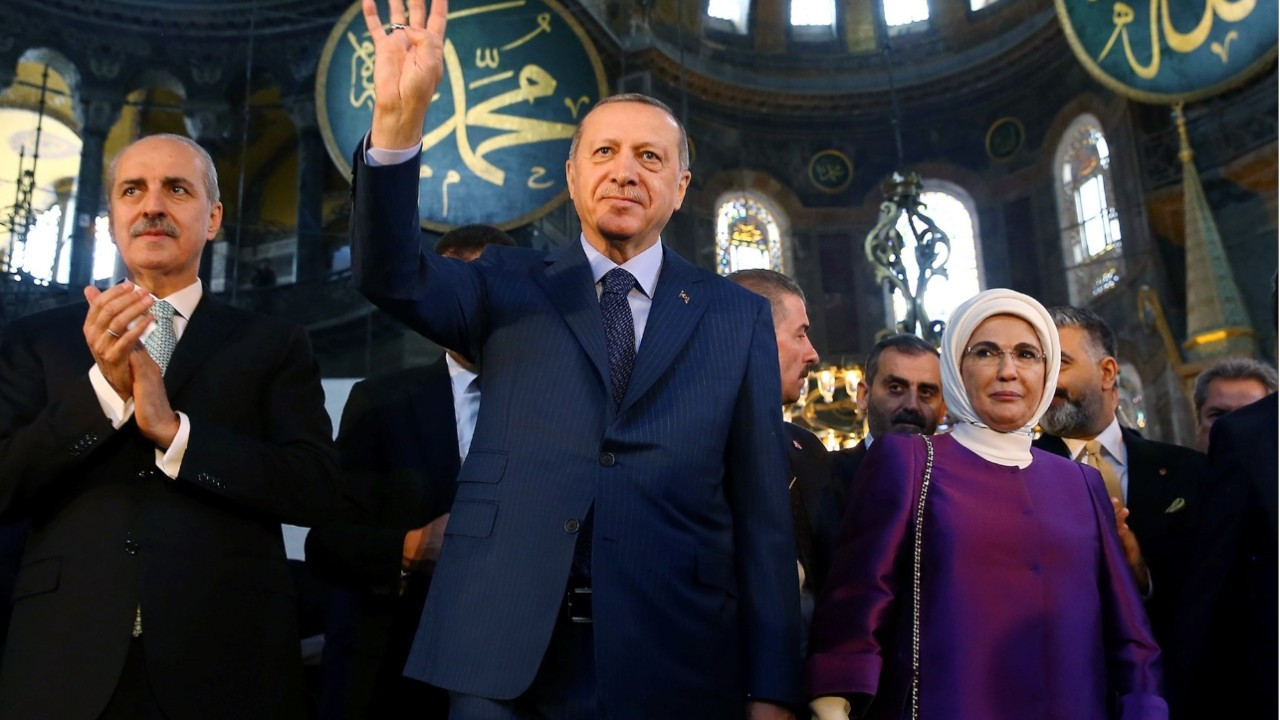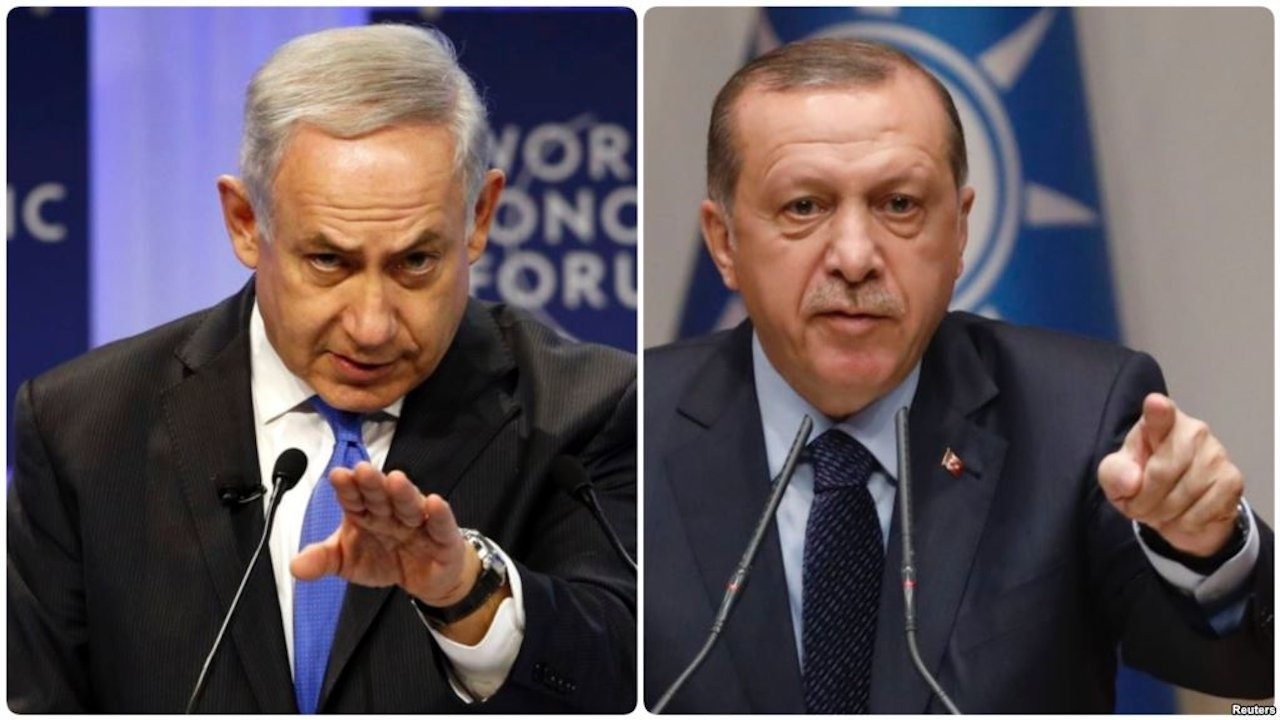Turkey 'ready to exchange ambassadors with Israel again'
The Turkish government is reportedly ready to dispatch an ambassador to Tel Aviv once the Israeli government commits to simultaneously reciprocating the measure. The main point of contention between the two former allies remains the presence of senior Hamas officials on Turkish soil, an official told Israel Hayom.
Duvar English
Turkey on March 29 informed Israel that it is ready to dispatch an ambassador to Tel Aviv once the Israeli government commits to simultaneously reciprocating the measure, a senior Turkish official told Israel Hayom. The main point of contention between the two former allies remains the presence of senior Hamas officials on Turkish soil, the official said.
Following years of contentious relations, Turkey recently altered its foreign policy toward the region in general and Israel in particular. President Recep Tayyip Erdoğan on Dec. 25, 2020 said that Ankara would like to have better ties with Israel.
Erdoğan's remarks on the issue came some three weeks after former Admiral Cihat Yaycı proposed a shared maritime border deal with Israel.
The trend continued earlier this month, when Dr. Hakan Yurdakul, a board member of the Turkish Presidency's Committee for Economic Policies, attended a European Jewish Parliament conference focusing on a renewed agenda between the former allies.
Israel is not the only country in the Middle East with which Ankara wants to rehabilitate and normalize relations. In Ankara's efforts to normalize ties with Cairo, Turkish authorities on March 20 ordered Istanbul-based TV channels affiliated with the Muslim Brotherhood to tone down criticism of the Egyptian government.
Contrary to Cairo's official denial of rapprochement with Turkey, meanwhile, Prime Minister Benjamin Netanyahu, while speaking at a Likud campaign event in Bat Yam on March 10, confirmed Israel was "engaged in talks with Turkey" about natural gas in the eastern Mediterranean. At the event, the prime minister also noted Israel was holding fruitful talks with Egypt, Greece and Cyprus on the issue of exporting gas to Europe.
"Turkey and Israel never severed their diplomatic ties, despite all the negative events over the years," Karel Valansi, a political analyst for the online news portal T24, told Israel Hayom.
"Both countries have managed to separate economics and politics, and have helped one another on humanitarian issues. The channels of dialogue are always open, such that it's not easy for either country to give up on their relationship. With that, the relationship has suffered considerably, meaning political will and trust-building measures are needed for it to be rehabilitated," she said.
Hamas remains an issue
As for Turkey's foreign policy, Valansi said, "Turkey's growing isolation in the region and its strained relations with the United States are the catalysts for Ankara's proposals to normalize relations with other countries in the region, including Israel."
According to Valansi, "Israel won't ignore an opportunity to rehabilitate relations with Turkey, but it wants certainty as it pertains to Turkey's intentions."
"Turkey used to be a vital economic, diplomatic and defense partner for Israel. With that, the situation today is different. While Turkish-Israeli relations have declined, Israel has strengthened its relations with many other countries in the Middle East and the Persian Gulf. Ankara's support for Hamas, its growing interest in Jerusalem and its foreign policy shifts all mean Israel must act with caution."
Dr. Hay Eytan Cohen Yanarocak said Turkey's support for Hamas remains the most serious obstacle in the face of normalization.
"But it's not an impossible task – Turkey can take the necessary steps to meet Israel's demands on this matter. I think what happened with the Muslim Brotherhood could also happen with Hamas. However, the steps against the Muslim Brotherhood were only preliminary. Turkey can take significant steps to convince Israel its intentions are honest."

 Israeli PM confirms contact with Turkey as part of normalization of tiesDiplomacy
Israeli PM confirms contact with Turkey as part of normalization of tiesDiplomacy Erdoğan wishes to improve ties with Israel, says intelligence talks continueDiplomacy
Erdoğan wishes to improve ties with Israel, says intelligence talks continueDiplomacy Turkey bought a lot of weapons from Israel, we can arrange this again: Erdoğan aideDiplomacy
Turkey bought a lot of weapons from Israel, we can arrange this again: Erdoğan aideDiplomacy